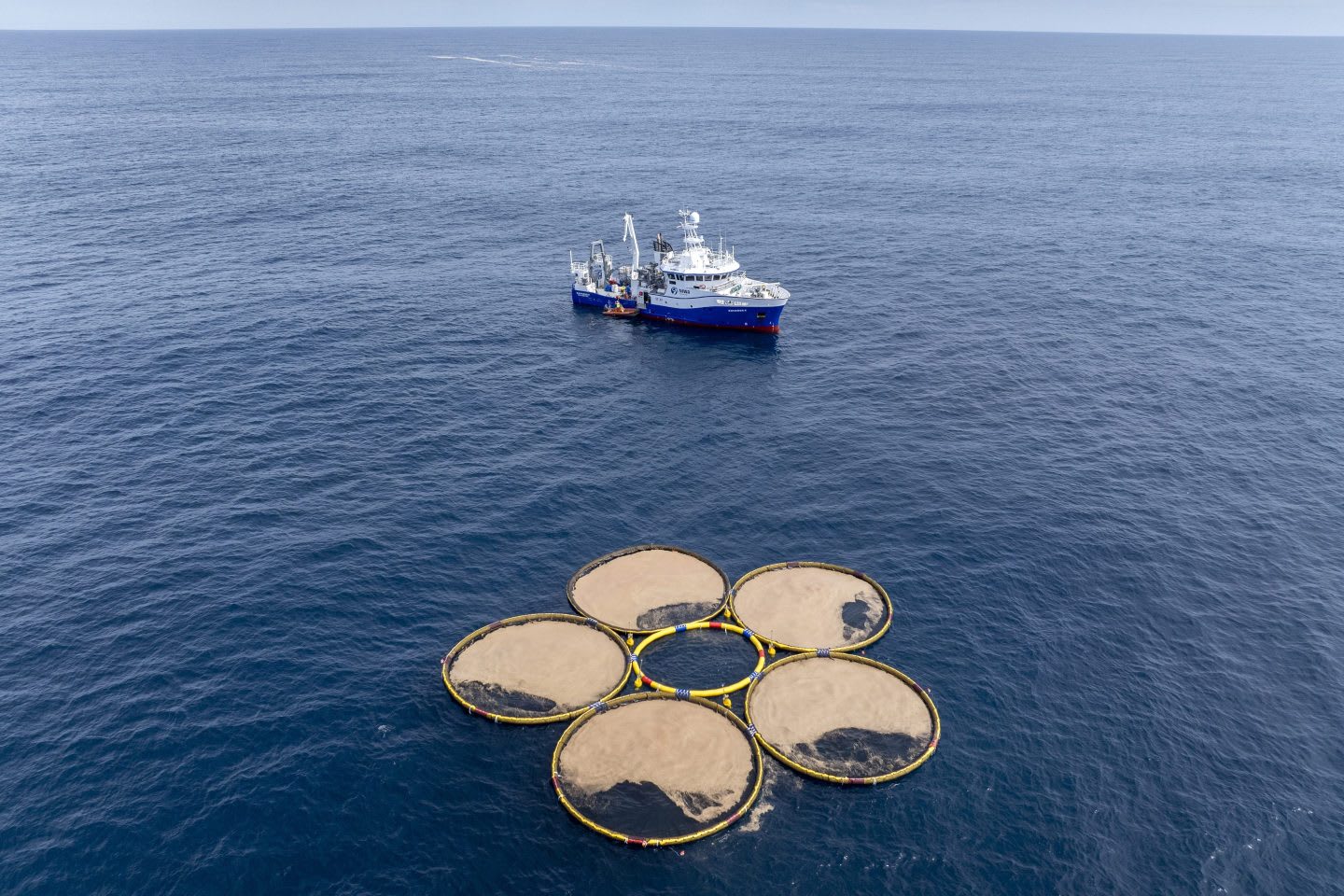- Scientists Question Core Claims
- Technology Draws Iron Fertilization Comparisons
- Growing Industry Faces Scrutiny
A three-year-old Israeli startup has sold 200,000 ocean carbon credits to an aviation company for an unproven technology that releases particles into the sea, drawing sharp criticism from marine scientists who question whether the method works and warn it could harm ocean ecosystems.
Gigablue's January deal with SkiesFifty represents the largest ocean-based carbon removal agreement to date, according to tracking site CDR.fyi. But the transaction has spotlighted tensions in the loosely regulated carbon credit industry, where companies can sell offsets for technologies that lack peer-reviewed validation.

Leading oceanographers have expressed skepticism about Gigablue's approach, which involves dispersing iron-containing particles designed to grow algae that would sink and trap carbon.
"Typical phytoplankton do not grow on surfaces, and they do not colonize particles," Thomas Kiørboe, a professor of ocean ecology at the Technical University of Denmark, told The Associated Press1. "To most phytoplankton ecologists, this would just be, I think, absurd."
Philip Boyd, an oceanographer at the University of Tasmania, said the rapid sinking rates Gigablue claims—up to 100 meters per hour—might shear algae off the particles1. He wants proof that the particles actually cause oceans to absorb more CO2 from the atmosphere.
"These are incredibly challenging issues that I don't think, certainly for the biological part, I don't think anyone on the planet has got solutions for them," Boyd said1.
James Kerry, a marine scientist with conservation group OceanCare, characterized the situation as "a company, a startup, upfront selling large quantities of credits for a technology that is unproven"1.
Several scientists see connections to iron fertilization, a controversial practice banned for commercial use under international treaty. While Gigablue denies direct links, Kerry said: "If they're using iron to stimulate phytoplankton growth, then it is iron fertilization"1.
The company defends its methodology, noting approval from New Zealand's National Institute of Water and Atmospheric Research1. Co-founder Ori Shaashua said the particles have "zero impact on the ocean" and don't change water chemistry1.
The ocean carbon credit market sold more than 340,000 credits last year, up from 2,000 four years ago1. SkiesFifty's purchase supports aviation industry decarbonization goals amid sustainable fuel supply shortages2.
But Ken Buesseler, a senior scientist at Woods Hole Oceanographic Institution, said the idea that particles don't alter ocean conditions is "almost inconceivable"3.
"They mean well, and so do I," said Jimmy Pallas, an Italian event organizer who bought Gigablue credits3.



